“Public officers are the servants and agents of the people, to execute the laws which the people have made. In the scheme of our national government, the presidency is preeminently the people’s office.”
~President Grover Cleveland
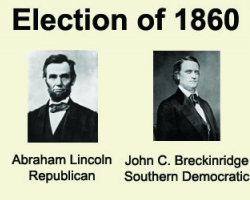
1860 – I know I promised shorter write-ups but this one needed more…With tensions over slavery dominating the national landscape, the election of 1860 became a free-for-all. The big problem for the Democratic Party was the slavery issue had split the party (and the country) along geographical lines.
While the (Northern) Democrats selected Stephen A. Douglas to represent them, (Southern) Democrats eventually chose to form their own party and run their own candidate, John Breckinridge.
At the national Republican convention, none of the front-runners could find enough support to represent the entirety of the party. Abraham Lincoln became the compromise candidate.
But that wasn’t the end of it. Yet another party had formed, the Constitutional Union Party. Made up of members of the other political parties (including the Whig Party) they chose Speaker of the House John Bell as their candidate.
Breckinridge proved far more attractive to Southern voters, and the Southern Democrats won 11 states and 72 electoral votes. Bell and the newly formed Constitutional Union Party carried three states and 39 electoral votes. Douglas and his (Northern) Democrats won only one state, Missouri, with 12 electoral votes, despite winning 1.3 million popular votes.
The winner in the election, though, was Lincoln, carrying 18 states and 180 electoral votes, a clear majority.
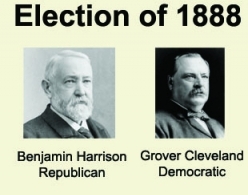
1888 – Benjamin Harrison, a grandson of former President William Henry Harrison, defeated President Grover Cleveland.
The final national popular vote tally had Cleveland ahead by just more than 90,000 votes (out of nearly 10.5 million votes cast) but the final electoral tally was 233-168, in favor of Harrison..
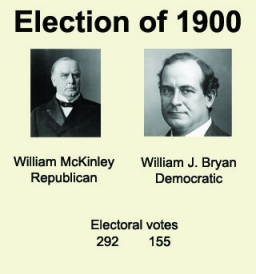
1900 – With the United States enjoying a return to economic prosperity and a victory in the Spanish-American War, President William McKinley easily defeated William J. Bryan at the polls, just as he had done four years earlier.
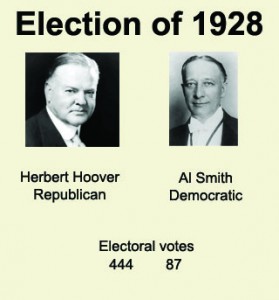
1928 – With incumbent Calvin Coolidge declining to run for re-election, Herbert Hoover, his Secretary of Commerce, won the Republican nomination and squared off against New York Governor Al Smith.
As the first Catholic to be nominated, Smith was feared by Protestants, including German Lutherans and Southern Baptists, who believed that the Catholic Church and the Pope would dictate his policies.
The booming economy and the anti-Catholic concern among voters resulted in a landslide victory for Hoover.

1928 – Arnold Rothstein, the head of the Jewish mob in New York, died two days after being shot.
The shooting was linked to debts owed from a three-day long, high-stakes poker game a month earlier. Rothstein hit a cold streak and ended up owing $320,000 (equivalent to $4.7 million today).
Rothstein was widely reputed to have organized corruption in professional athletics, including conspiring to fix the 1919 World Series.
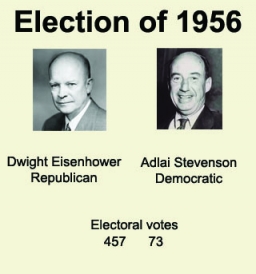
1956 – In a rerun of the 1952 election President Dwight Eisenhower easily defeated Adlai Stevenson.
It was the first presidential campaign to make wide use of television ads.
1962 – Former Vice-President Richard M. Nixon lost the California election for governor to Edmund Brown. Nixon blamed the news media for his loss and promised, “You don’t have Nixon to kick around anymore.”
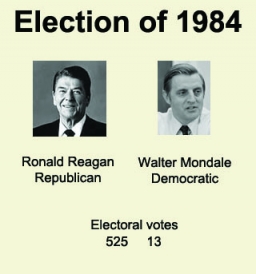
1984 – President Ronald Reagan enjoyed a massive win over former Vice-President Walter Mondale.
Reagan’s popularity, his tough stance against the spread of Communism, and the country’s rising prosperity were all factors. Reagan’s 525 electoral votes (out of 538) is the highest total ever received by a presidential candidate.
Mondale’s only electoral votes came from the District of Columbia and his home state of Minnesota, which he won by a mere 3,761 votes.

1991 – A Canadian team put out the last of 751 oil well fires started by Iraqi president Saddam Hussein’s troops at the close of the Gulf War.
The fires had burned for approximately ten months, and as a result, approximately 6 million barrels of oil had been lost each day.
ROCK & ROLL HISTORY
1967 – John Fred & His Playboy Band released Judy In Disguise (With Glasses).
The single, which peaked at #1 in the U.S., was a parody of The Beatles song Lucy in the Sky with Diamonds. Songwriter and lead singer Fred Gourrier thought the lyrics to The Beatles song were “Lucy in disguise with diamonds” when he first heard it.
1967 – Bob Dylan recorded All Along The Watchtower, I Pity The Poor Immigrant, I Am A Lonesome Hobo and John Wesley Harding at Columbia Studio A in Nashville.
1970 – Badfinger released No Matter What. The single, which Apple Records executives in London were hesitant to release until Al Steckler, the American director of Apple in New York practically demanded it, peaked at #8 on the Billboard Hot 100.
1972 – Loggins & Messina released the Your Mama Don’t Dance.
The lead single off their self-titled album peaked at #4 on the Billboard Hot 100.
1995 – Queen released Made In Heaven. It was the band’s first release after the death of lead singer Freddie Mercury in 1991.
Guitarist Brian May, drummer Roger Taylor, and bass guitarist John Deacon worked with vocal and piano parts that Mercury recorded before his death, adding new instrumentation to the recordings.
The album reached #1 in England but only peaked at #58 in the U.S.
MOVIE/TV HISTORY
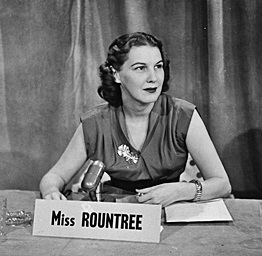
1947 – Meet The Press premiered on NBC.
Although it is now a Sunday morning show, it was originally a Saturday night show, hosted by Martha Rountree, its creator and the program’s only full time female moderator to date.
It was originally presented as a 30-minute press conference with a single guest and a panel of news journalists.
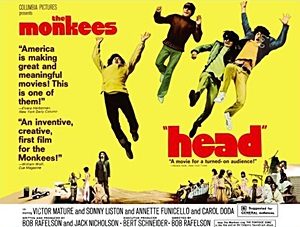
1968 – The Monkees film Head premiered in New York City.
It was a commercial disaster, partially because Head comprehensively demolished the group’s carefully-groomed public image they had developed on The Monkees TV show and confused their teen audience.
Meanwhile the older audience they’d been hoping to reach rejected the film efforts as a lame joke.
1969 – The Rose starring Bette Midler, premiered at the Ziegfeld Theater in New York City.
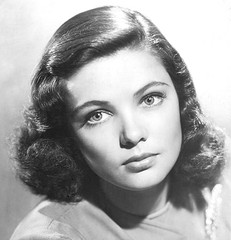
1991 – Actress Gene Tierney died of emphysema at the age of 70.
She was nominated for an Academy Award for Best Actress for her performance in Leave Her To Heaven but best known for her portrayal of the title character in the film Laura.
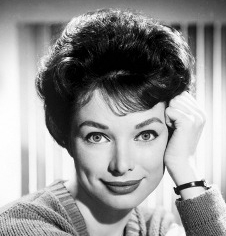
1995 – Actress Aneta Corsaut (best known for playing the role of Helen Crump on The Andy Griffith Show) died of cancer just three days after her 62nd birthday.
2005 – The Four Seasons musical Jersey Boys premiered at the August Wilson Theatre in New York City.
The Broadway production closed on January 15, 2017 after 4,642 performances.
SPORTS HISTORY
1869 – In New Brunswick, NJ, Rutgers College defeated Princeton University (then known as the College of New Jersey), 6–4, in the first official intercollegiate football game.
Compiled by Ray Lemire ©2005-2020 RayLemire.com / Streamingoldies.com. All Rights Reserved.
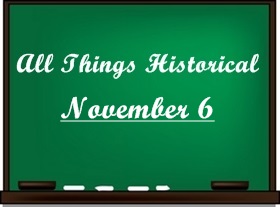
Really enjoyed the coverage of past elections! A dead mobster and a Disgruntled Dick 😉 I was able to listen to all the music videos with a big smile on my face. I dont think I’d ever heard that lovely Queen song. 🙂 I’ve never seen The Rose but I may someday; I’ve always loved the title song 🙂 Thank you for sharing these memories ❤ 🙂 XOXOXOXO
Thanks, Wendyl ❤️
Nothing worse than a disgruntled Dick … Nothing 🙂
That Queen song isone of my favorites by them. So sad that in real life, too much love did kill Freddie.
The Rose is a great (but sad) movie. I am no Bette Midler fan but she was outstanding in that film.
Have a super duper night!
XOXOXOXO
Appreciated the history lesson this morning. I am, however, aware I remember an ever increasing number of these historical events. Hahahaha
Good to be alive and looking forward today and tomorrow. Keep ‘em coming Ray!
Thank you, Marty. Yes, it is true we have many personal recollections of these many of these events 🙂
As I said to Barbara B in response to her comments on the Neil Diamond medley, I have made the difficult decision to devote my energy to music medleys from now on. I simply can’t do both music and history. It takes far too many hours of each day. I know a lot of people enjoy both and I apologize to the history lovers but I have let too many sunny afternoons go by my window while I sat here and typed.
As I previously said we are spoiled and have grown to expect too much. I am often playing catch-up on the history lesson but able to play the medleys while doing other tasks. Today was an exception and enjoyed both with coffee. Tomorrow it is likely I will be participating in a snow removal exercise of some type. We appreciate your efforts Ray and will be very happy with whatever you share. Do something you enjoy every day just for yourself!
Thank you, Marty. I honestly thought I could keep up the pace but the years are catching up to me. The music will be more than enough.